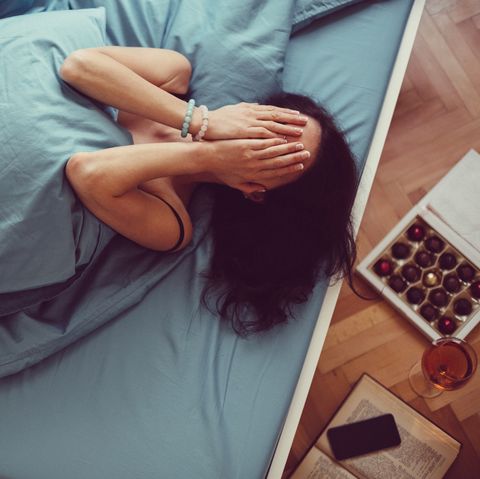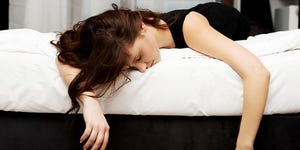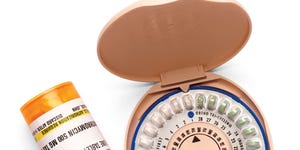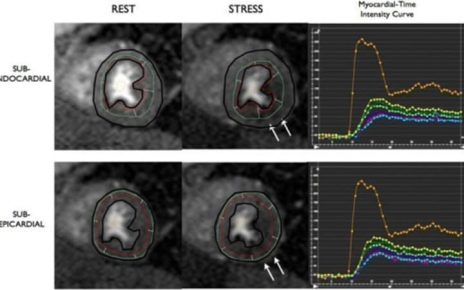
The first thing you wonder after waking up after a Rough Night-style evening: Uh, how long does a hangover last again?
Typically, hangovers only last the morning (like, until you finally get around to eating breakfast)—at most 24 hours.
But sometimes, that after-effects of a night of drinking stick around way past their welcome—like the dreaded two-day hangover which makes you realize, oh yeah, you’re not in college anymore.
Just wondering…why are hangovers even a thing?
“Hangovers are somewhat poorly understood from a medical standpoint,” says Fred Goggans, M.D., the medical director of McLean Hospital’s McLean Borden Cottage in Camden, Maine. For the most part, the symptoms are considered a form of short-term withdrawal and tend to be time-limited.

Your liver also has to work overtime to process alcohol. “The liver needs to first break down alcohol into acetaldehyde, which is toxic,” says Anne Boris, R.D., L.D.N., of Northwestern Medicine Huntley Hospital. “Then, it breaks down acetaldehyde into acetate, which is nontoxic.” If a person drinks too much for their body, or if their liver isn’t working efficiently, the body can’t turn acetaldehyde into acetate quick enough—that’s where a hangover comes into play.
Goggans also says that the strength and length of your hangover goes hand in hand with the amount of alcohol you had. Beyond that? “There are also some other factors that are speculated to influence the intensity and duration of a hangover,” he says.
But why do some hangovers last an appropriate amount of time and others…don’t?
1. You didn’t drink enough water.
“Alcohol has a diuretic effect—heavy drinking may maximize that,” says Vincent Pedre, M.D., author of Happy Gut. Drinking can dehydrate you—even more so if you’re vomiting or suffering from diarrhea. And this, on top of mineral imbalances (from the influx of booze and loss of fluids and electrolytes), can slow how fast your body detoxifies itself, he explains.
Ease the pain by staying hydrated—alternating every glass of booze with a glass of water, he says—and make sure to keep drinking water even when you really don’t feel like it the next day.
2. You had a rough night’s sleep.

You know that a good sleep can help you feel your best in the a.m. But you might not realize that while a few glasses of wine could put you to sleep, vino certainly won’t help you get your deepest snooze on. “People tend to have interrupted sleep following a drinking episode,” says Goggans.
And it all comes full circle: The more you drink, the worse you sleep, and then, the worse you feel the day after (and sometimes the day after that).
3. You drank a darker booze.
Meet congeners—they’re flavoring agents or byproducts of fermentation in booze, and they are linked to hangovers, says Goggans. “It seems like the congeners in the darker liquors and drinks are associated with a longer hangover,” he says.
Stay clear to keep yourself in the clear: Liquors linked to worse next-day pain include whiskey, rum, red wine, and brandy, says Goggans; those less likely to cause a hangover: white wine, vodka, and gin.
4. You’re getting older (sorry, but it’s true).
If you’re 21, your ability to detoxify alcohol is different than if you’re 40 (or even 28), says Pedre. “As we get older, our cells age, and we might not be able to process toxins as we did when we were younger,” he says. So while three drinks was fine back in the dorms sophomore year, that amount may feel like double that 10 years later.
5. You have a sensitivity, but don’t realize it.
Lots of people have sensitivities to certain food or chemicals they don’t even know about. Beer, for example, is made with barley and hops (a.k.a., gluten); mixers can be super high in sugar; wine can have sulfites—all of these are things you can be intolerant to, says Goggans, which can really amp up your hangover (yes, even if you only have one glass).
6. You drank on an empty stomach.
Alcohol can irritate the lining of your stomach, which can make any hangover-induced nausea, abdominal pain, or vomiting worse, says Boris.

Booze can also affect your blood sugar, says Cox. “Alcohol is a big surge of calories and simple sugars, it can spike your blood sugar then make it fall,” he says, adding that not having food in your stomach before drinking can make those levels spike even more drastically.
The solution? Eating a little bit of something relatively hearty (think: a peanut butter and jelly sandwich instead of a garden salad) before drinking to slow alcohol’s absorption.
7. You have your period.
Your body’s already under a little bit of strain during your period (you are bleeding, after all), and since alcohol can dehydrate you, it can deplete your energy even more on your period, says Cox.
8. You’re on medication.
Many medications are metabolized (a.k.a., broken down) by the liver and kidneys—the same organs your body uses to metabolize alcohol, which can leave those two organs working overtime, and possibly not performing their best.

“Pain relievers like acetaminophen, antidepressants, cholesterol medication, and blood pressure medications are ones you want to be especially careful with,” says Cox.
Antibiotics can also affect how your body processes alcohol, says Cox. While it’s not an issue with all antibiotics, some can cause nausea, liver damage, and high blood pressure when combined with alcohol, says Cox—so it’s best to check with your doctor to know if your specific medication interacts with booze.
Source: Read Full Article



